The European Parliament,
– having regard to its resolution of 14 March 2019 on the human rights situation in Kazakhstan[1] and its previous resolutions on Kazakhstan, including those of 18 April 2013[2], 15 March 2012[3] and 17 September 2009[4],
– having regard to the Enhanced Partnership and Cooperation Agreement (EPCA) between the European Union and its Member States, of the one part, and the Republic of Kazakhstan, of the other part, which was signed in Astana on 21 December 2015 and which entered into full force on 1 March 2020 following its ratification by all Member States,
– having regard to the Council conclusions of 17 June 2019 on the new EU strategy on Central Asia,
– having regard to the Kazakhstan country report contained in the EU Annual Report on Human Rights and Democracy in the World 2019,
– having regard to the Universal Declaration of Human Rights, the International Covenant on Civil and Political Rights, and the UN Convention against Torture,
– having regard to the 17th meeting of the EU-Kazakhstan Cooperation Council of 20 January 2020, to the 12th EU-Kazakhstan Human Rights Dialogue meeting held on 26 and 27 November 2020, and to the 18th meeting of the EU-Kazakhstan Cooperation Committee of 25 September 2020,
– having regard to the UN Human Rights Council Universal Periodic Review of Kazakhstan of 12 March 2020,
– having regard to the Second Optional Protocol to the International Covenant on Civil and Political Rights,
– having regard to the statements by the spokesperson of the European External Action Service (EEAS) of 1 February 2021 on the increasing pressure on human rights NGOs in Kazakhstan, of 11 January 2021 on the parliamentary elections in Kazakhstan, and of 7 January 2021 on steps to abolish the death penalty,
– having regard to the statement of the Organization for Security and Co-operation in Europe (OSCE) on its preliminary findings and conclusions with regard to the elections in Kazakhstan of 10 January 2021,
– having regard to Rule 144(5) and 132(4) of its Rules of Procedure,
A. whereas a worrying deterioration in the general situation of human rights and a crackdown on civil society organisations in Kazakhstan has been noted in the past weeks, with harsh restrictions imposed on the rights to freedom of expression, peaceful assembly and association; whereas civil society and human rights organisations working in Kazakhstan have been subjected to increasing pressure and penalisation by the country’s authorities, which hinder reform efforts and limit the essential work of civil society;
B. whereas on 21 December 2015 the European Union and Kazakhstan signed an Enhanced Partnership and Cooperation Agreement (EPCA) aimed at providing a broad framework for reinforced political dialogue and cooperation in justice, home affairs and many other areas; whereas this agreement puts a strong emphasis on democracy, the rule of law, human rights, fundamental freedoms, sustainable development and civil society cooperation; whereas the EPCA entered into full force on 1 March 2020 following its ratification by all Member States;
C. whereas the new EU strategy on Central Asia puts a strong emphasis on the EU’s engagement with Central Asia in the protection and promotion of the rule of law, human rights and fundamental freedoms, including freedom of association and expression, and the creation of an enabling environment for civil society and human rights defenders; whereas the European Union provides substantial COVID-19 relief to Kazakhstan, including most recently through its financial support to a World Health Organization (WHO) shipment of over 8 000 kg of medical supplies on 29 January 2021;
D. whereas Kazakhstan’s parliamentary elections of 10 January 2021 have been described by the EEAS as a missed opportunity to demonstrate the efficient implementation of political reforms and its modernisation process since the last elections, while long-standing recommendations from the OSCE Office for Democratic Institutions and Human Rights (ODIHR) on several issues remain unaddressed, including those related to fundamental freedoms, the impartiality of election administration, eligibility to vote and stand for elections, voter registration, the media and the publication of election results; whereas according to the preliminary findings of the OSCE/ODIHR and the OSCE Parliamentary Assembly, the legal framework in Kazakhstan is not yet conducive to holding elections in line with international standards;
E. whereas systemic shortcomings in relation to respect for freedom of association, assembly and expression continue to restrict the political landscape, and the lack of genuine political competition and political opposition groups, with no new parties registered since 2013, have left voters with no genuine choice; whereas democratic elections are a cornerstone of achieving political reforms and building a free and open society;
F. whereas two opposition movements, the Koshe Partiyasy and the Democratic Choice of Kazakhstan, were banned by secret court decisions labelling them as ‘extremist’ organisations with no right to appeal; whereas 17 leaders of the Koshe Partiyasy have been sent to pre-trial detention facilities under Article 405 and Article 182 of Kazakhstan’s Criminal Code and risk long prison terms; whereas prisoners charged for supporting the Democratic Choice of Kazakhstan are still serving their prison sentences; whereas 26 political prisoners, including Almat Zhumagulov, Aset Abishev, Kenzhebek Abishev, Askhat Zheksebayev, Kairat Klyshev, Yerbol Yeskhozin, Abai Begimbetov, Asel Onlabekkyzy, Yerkin Sabanshiyev, Zhanat Zhamaliyev, Diana Baimagambetova, Noyan Rakhimzhanov and Askar Kayyrbek, have fallen victim to political prosecution in connection with their support for these movements;
G. whereas the unregistered opposition Democratic Party was not allowed to participate in these elections, as on 22 February 2020 the authorities prevented the party from holding its founding congress in Almaty; whereas without holding such a congress it is impossible for a party to register; whereas members of the Democratic Party faced pressure from the authorities, as some were arrested for alleged administrative violations and others were prevented from travelling to the congress venue;
H. whereas during the election campaign and on election day, the Kazakh authorities attempted to tighten internet censorship control, repeatedly shutting down the internet and forcing citizens to install a ‘national security certificate’ allowing for the interception of encrypted web traffic; whereas the state’s control over the internet is increasing, including attempts to restrict the flow of information through internet censorship and control and internet shutdowns, and by continuing to demand that citizens install a ‘national security certificate’ which allows for the interception of internet users’ online traffic;
I. whereas during the campaign period mass arrests were carried out; whereas on election day the authorities illegally detained at least 350 peaceful protesters in 10 different cities; whereas the Kazakh authorities routinely prevent peaceful protests critical of government policies from taking place; whereas the law on peaceful assembly and the amendments to the laws on political parties and elections adopted in May 2020 fail to respect the fundamental rights of the citizens of Kazakhstan;
J. whereas the ODIHR limited election observation mission (LEOM) reported that the work of independent observers was burdened and impeded by the authorities, while pro-government observers were allowed to monitor the electoral process; whereas human rights NGOs reported that a considerable number of independent observers to the legislative elections of 10 January 2021 were subjected to intimidation, administrative arrests and fines;
K. whereas the media landscape in Kazakhstan is dominated by state-owned or state-subsidised media channels; whereas between January and July 2020, seven journalists were physically attacked and 21 journalists, bloggers and activists were detained, seven of whom while reporting; whereas authorities in 2020 brought more than 38 criminal cases against journalists for alleged crimes such as spreading false information and incitement; whereas the main national opposition newspapers were all banned in 2016 and independent journalists continue to face harassment; whereas the authorities brought criminal charges against the editor-in-chief of the independent newspaper Uralskaya Nedelya, Lukpan Akhmedyarov, for his reporting of the corrupt dealings of the local elite, and physically assaulted and detained Saniya Toiken, a journalist for RFE/RL’s Kazakh Service, numerous times for her coverage of peaceful rallies and the 2021 parliamentary elections;
L. whereas from February to November 2020, five opposition activists were killed or died in unclear circumstances after continuous political persecution for their opposition activities, namely blogger and torture victim Dulat Agadil, his 17-year old son Zhanbolat Agadil, who was a key witness of his father’s arbitrary arrest, Amanbike Khairolla, Serik Orazov and Garifulla Embergenov; whereas the authorities have failed to carry out thorough, transparent investigations into their deaths; whereas it is of the utmost importance to bring those responsible for ordering and carrying out such crimes to justice and to ensure that they refrain from persecuting civil society activists and family members seeking the truth for victims; whereas the Kazakh authorities cracked down on at least 200 activists who participated in the memorial ceremony for Dulat Agadil or organised fundraising activities for his and other political prisoners’ families; whereas 57 of them have been charged with ‘extremism’, including Dametkan Aspandiyarova, a mother of three children, who is currently under house arrest and faces up to 12 years in prison under extremism charges for organising a fundraising activity in support of Dulat Agadil’s family;
M. whereas in Kazakhstan’s prisons the use of torture and ill treatment has been prevalent, with at least 200 cases of incidents of torture being reported every year by the Coalition Against Torture; whereas perpetrators of such abuses have enjoyed impunity while human rights defender Elena Semenova has been sued by prison colonies for exposing the use of torture in the Kazakh penitentiary system on social media;
N. whereas despite appeals from the UN Special Rapporteur[5], from the Parliamentary Assembly of the Council of Europe and from the European Union, the Kazakh authorities abuse vague and overly broad extremism laws to persecute the opposition and human rights defenders; whereas following this law, since 22 October 2020, the day on which the authorities announced the date of the elections, the number of politically motivated criminal cases has doubled, rising to 99, specifically on the basis of ‘extremism’ charges; whereas 69 of those concerned are in danger of imminent arrest, such as the activist Gulzipa Dzhaukerova, and 11 activists were put under house arrest on trumped-up ‘extremism’ charges;
O. whereas several independent human rights NGOs, including ECHO, Erkindik Kanaty, the Kazakhstan International Bureau for Human Rights and Rule of Law, and International Legal Initiative, have recently been heavily fined and ordered to suspend their work for up to three months as of 25 January 2020, on unclear legal grounds; whereas, in retaliation for performing watchdog activities, the authorities harass and even criminally prosecute human rights defenders, including Sholpan Dzhanzakova, Anna Shukeyeva, Raigul Sadyrbayeva, Aizhan Izmakova, Daniyar Khassenov, Altynai Tuksikova, Dana Zhanay, Nazym Serikpekova, Alma Nurusheva, Abaibek Sultanov, Zukhra Nariman, Ulbolsyn Turdiyeva, Aliya Zhakupova, Roza Musayeva and Barlyk Mendygaziyev; whereas between October and November 2020 at least 15 organisations were notified that they had violated Article 460-1 of the Code of Administrative Offences for allegedly failing to properly inform the authorities about foreign funding received;
P. whereas in 2020, 112 individuals, three charities and one commercial company were convicted for exercising their freedom of religion or belief;
Q. whereas widespread corruption among the ruling elite prevails in Kazakhstan, as evidenced by the fact that the country ranks 94th on Transparency International’s 2020 Corruption Perceptions Index, and impedes human rights, social justice and socio-economic development;
R. whereas in the midst of the COVID-19 pandemic, the government misused its pandemic restrictions as a pretext for intensifying the political repression of civil society, human rights activists, opposition voices and medical workers who denounced the government’s failures to contain the outbreak;
S. whereas on 21 January 2021 two ethnic Kazakhs Murager Alimuly and Kaisha Akankyzy, who fled China fearing imprisonment in concentration camps, were subsequently beaten and stabbed by unknown assailants, and sufficient attention must therefore be paid to continuous ethnic tensions in Kazakhstan’s southern regions; whereas violent ethnic clashes in Kazakhstan continue, particularly in the south, where in February 2020 clashes between Kazakhs and ethnic Dungans left 11 people dead, dozens wounded and more than 23 000 people, mostly Dungans, forced from their homes;
T. whereas the Kazakh authorities have abused international criminal cooperation mechanisms, including Interpol Red Notices and Mutual Legal Assistance (MLA), to prosecute and seize the documents of a political refugee in Belgium, the lawyer and human rights defender Bota Jardemalie; whereas on 29 September 2020 the National French National Court of Asylum granted political asylum to the Democratic Choice of Kazakhstan founder, Mukhtar Ablyazov, who was sentenced by a Kazakh court to life imprisonment in absentia in violation of the right to defence, noting the systemic and political nature of Kazakhstan’s repressive apparatus and its misuse of civil and criminal proceedings;
U. whereas the Kazakh authorities continue to target independent trade unions and trade union activists; whereas in 2020 the Trade Union Law was amended, removing trade union affiliation and two-step registration requirements; whereas despite that amendment, the Shymkent city administration dropped its lawsuit against the Industrial Trade Union of Fuel and Energy Workers (ITUFEW) on the basis of unsubstantiated claims or provisions that no longer exist or do not apply to ITUFEW;
V. whereas gender equality remains a problem in Kazakhstan; whereas NGOs state that violence against women is under-reported and that there is a low rate of prosecution in these cases, as well as in sexual harassment cases; whereas COVID-19 has created a new obstacle for girls to equal access to information and education, according to the UN; whereas victims lack sufficient protection, and judicial and police officers and service providers are not trained to identify, prevent and respond to violence against women;
W. whereas LGBTI persons in Kazakhstan still face legal challenges and discrimination; whereas the Kazakh Parliament adopted discriminatory amendments to the new health code in June 2020 that regulate aspects of healthcare for transgender people; whereas the process for changing one’s gender identity in Kazakhstan remains invasive and humiliating;
1. Urges the Government of Kazakhstan to act in accordance with its international obligations and to respect human rights and fundamental freedoms as enshrined in Articles 1, 4, 5 and 235 of the EPCA; calls on the authorities of Kazakhstan to comply with international standards in respecting the legal framework for holding elections and to address the recommendations of the ODIHR LEOM, including those concerning constitutionally guaranteed fundamental freedoms, civil society participation, political pluralism, the impartiality of election administration, eligibility to vote and stand for elections, voter registration, the media and publication of election results;
2. Calls on the Government of Kazakhstan to drop politically motivated charges and end all forms of arbitrary detention, reprisals and harassment against human rights activists, religious organisations, civil society organisations, trade unions, journalists and political opposition movements, and to allow people to freely express their political, religious and other views; calls on the government to amend the new law on peaceful assembly so that this freedom is guaranteed;
3. Urges the Government of Kazakhstan to immediately release and fully rehabilitate all political prisoners, in particular Almat Zhumagulov, Aron Atabek, Nurgul Kaluova, Saltanat Kusmankyzy, Daryn Khassenov, Ulasbek Akhmetov, Kenzhebek Abishev, Yerzhan Yelshibayev, Aset Abishev, Igor Chuprina, Ruslan Ginatullin, Askhat Zheksebayev, Kairat Klyshev, Yerbol Yeskhozin, Abai Begimbetov, Asel Onlabekkyzy, Yerkin Sabanshiyev, Zhanat Zhamaliyev, Diana Baimagambetova, Noyan Rakhimzhanov and Askar Kayyrbek, and to lift without delay the measures of pre-trial detention and house arrest and the restrictions of liberty imposed on civil society and opposition activists, social media users and peaceful protesters; calls on the Government of Kazakhstan to revise the cases of and provide compensation to former political prisoners and victims of torture Iskander Yerimbetov, Maks Bokayev and Mukhtar Dzhakishev, in accordance with the recommendations of the UN Working Group on Arbitrary Detention and the UN Human Rights Committee;
4. Welcomes the steps taken by the Government of Kazakhstan to close the politically motivated cases against human rights defenders Daniyar Khassenov and Abaibek Sultanov, but is concerned about the fabrication of a new criminal case on grounds of ‘extremism’ against the latter; calls on the Government of Kazakhstan to lift all politically motivated charges against philanthropist Barlyk Mendygaziyev and to put an end to the politically motivated persecution of his family members and former associates;
5. Condemns the abuse of anti-extremism legislation against supporters of the peaceful opposition movements the Democratic Choice of Kazakhstan (DCK) and the Koshe Partiyasy, and urges the authorities to permit political pluralism and competition; urges the Government of Kazakhstan to implement the recommendations of the European Parliament, the UN Special Rapporteur on the promotion and protection of human rights and fundamental freedoms while countering terrorism, and the Parliamentary Assembly of the Council of Europe condemning the arbitrary application of anti-extremism laws;
6. Calls on Kazakhstan to implement reforms aim at furthering the country’s modernisation, democracy and stability, to strengthen efforts to reform the political system of Kazakhstan so as to develop parliamentarism and a multi-party system, and to expand civic participation; notes the establishment of a Supreme Council for Reforms and takes note of the announcement by the Kazakh authorities of a new stage of reforms, in particular on the issues of law enforcement, the judicial system and prioritising human rights; stresses the importance of continuing with this process, including changes in the electoral law and the full implementation of the OSCE/ODIHR recommendations;
7. Calls on the Kazakh authorities to stop using the criminal code against activists, bloggers, journalists and others for exercising their right to freedom of expression;
8. Welcomes the Kazakh authorities’ decision to cancel fines and allow NGOs to continue activities, as announced on 3 February 2021; calls for the three-year ban from activism against Max Bokayev to be lifted and for him to be allowed to continue his essential work; calls on Kazakhstan’s authorities to cease misusing financial reporting schemes to put pressure on human rights groups, to drop the unfounded charges of administrative offences against the groups targeted for alleged reporting violations, to bring legislation and practices on reporting foreign income into line with international standards, including by repealing Articles 460-1 and 460-2 of the Code on Administrative Offences, and to protect and facilitate the important work of civil society instead;
9. Reaffirms its strong belief that persecuting independent NGOs through unjustified tax inspections and that harassing human rights defenders and movements such as Bostandyq Kz, Femina Virtute, Veritas, 405 and Elimay, and civil society activists, by means of administrative arrests, fines and criminal prosecutions not only obstruct reform efforts already made by the authorities, but are also detrimental to the international reputation of Kazakhstan;
10. Deplores the worrying state of media freedom in the country and calls on the Government of Kazakhstan to provide a free and safe environment for independent journalists;
11. Urges the Government of Kazakhstan to allow independent trade unions to register and operate in line with international labour standards ratified by Kazakhstan, without any interference or harassment; deeply regrets the six-month suspension of 5 February 2021 of the operations of the Industrial Trade Union of Fuel and Energy Workers (ITUFEW) by the Specialised Interdistrict Economic Court in Shymkent for allegedly failing to register in accordance with the Trade Union Law; encourages the Government of Kazakhstan to meaningfully implement the Trade Union Law as amended in May 2020;
12. Notes with concern the new draft law on charities that imposes additional regulation measures on civil society organisations and directly contradicts the logic and best practices of charity work, as well as the recent initiative to create a Donor Organisations’ Association under the aegis of the government, which risks being misused to control donor organisations, further curtailing their independence and ownership of activities;
13. Calls on the authorities to combat all forms of violence against women, including by ensuring effective and accessible reporting channels and protection measures that are sensitive to victims’ needs and confidentiality; urges an end to impunity and action to ensure appropriate criminal sanctions against perpetrators, including in cases of domestic violence; urges the Kazakh authorities to criminalise domestic violence as a stand-alone offence, and to ensure criminal sanctions against perpetrators; calls on the Kazakh authorities to deem shelters and services for survivors of domestic violence ‘essential services’ and to facilitate access to them for all women and girls, including during the coronavirus crisis;
14. Insists that the rights of the LGBTI community must be fully respected; calls on the Government of Kazakhstan to guarantee the principle of anti-discrimination against the LGBTI community, including by prohibiting discrimination on the basis of gender identity or sexual orientation by law; calls for proper training for judicial and police officers, as well as service providers, to ensure that LGBTI people are given appropriate care and protection;
15. Urges the Government of Kazakhstan to ensure the safety of ethnic Kazakhs and other minority groups who have fled China’s concentration camps, including by granting permanent refugee status to Murager Alimuly and Kaisha Akankyzy, and to pay sufficient attention to continuous ethnic tensions in its southern regions;
16. Advises the Kazakh authorities against the abusive misuse of judicial cooperation mechanisms such as Interpol’s Red Notice system and MLA requests with a view to persecuting opponents of the regime abroad and gaining access to confidential information;
17. Welcomes Kazakhstan’s abolition of the death penalty for all crimes in its ratification of 2 January 2021 of the Second Optional Protocol to the International Covenant on Civil and Political Rights, thereby becoming the 88th party to the agreement; urges the Government of Kazakhstan to comply with its pledges of zero tolerance for torture and to ensure that any allegations of torture are fully investigated and those responsible brought to justice;
18. Urges the Government of Kazakhstan to eradicate torture and ill treatment in prisons, respect prisoners’ rights, and ensure proper living conditions, hygiene and a safe environment in terms of addressing the threats posed by COVID-19;
19. Calls on Kazakhstan to introduce proper safeguards for personal data and strengthen data protection legislation, as well as to limit the use of invasive digital surveillance technologies and introduce a regulatory framework that clearly prohibits arbitrary and unlawful digital surveillance, including face recognition, in compliance with human rights;
20. Calls for the EU and its Member States, including at summits and other high-level meetings, in multilateral forums and through local representations, to robustly support civil society, to take additional measures to provide support to Kazakh civil society through the Commission, including but not limited to expanding financial grant schemes to civil society organisations that promote human rights, democratic values, the rule of law, and fundamental freedoms in Kazakhstan, especially human rights defenders, and to strengthen people-to-people contacts with the citizens of Kazakhstan; stresses that financial assistance to Kazakhstan should be aimed at supporting civil society and victims of political persecution, not at supporting the authoritarian regime;
21. Encourages the EU Delegation to Kazakhstan to advance its engagement with local members of civil society by organising regular meetings and raising their recommendations during official meetings with Kazakh government officials;
22. Urges the EU Delegation to Kazakhstan to monitor ongoing human rights abuses and take a public stance towards the violations, to provide assistance to victims of political prosecution and imprisoned activists by attending the trials of government critics and human rights defenders and requesting prison visits, and to react swiftly and resolutely to any act that goes against the principles of the rule of law, democracy and human rights;
23. Recalls the recently approved EU Global Human Rights Sanctions Regime – which enables the EU to target perpetrators of serious human rights abuses worldwide – which, in the case of Kazakhstan, would allow for the targeting of individuals, entities and bodies involved in or associated with widespread and systematic human rights violations; calls on the Vice-President of the Commission / High Representative of the Union for Foreign Affairs and Security Policy (VP/HR) and the Member States to consider imposing targeted sanctions on individuals responsible for violations of human rights;
24. Demands that human rights be at the top of the EU’s engagement with Central Asia; underlines that deeper political and economic relations with the EU, as envisaged by the EPCA, must be based on shared values and correspond to active and concrete engagement by Kazakhstan on democratic reforms, stemming from its international obligations and commitments;
25. Calls on the Commission and the VP/HR to carry out a comprehensive review of the EPCA in the light of the recent developments and the outcome of the trade policy review;
26. Instructs its President to forward this resolution to the Council, the Commission, the Vice President of the Commission / High Representative of the Union for Foreign Affairs and Security Policy, the EU Special Representative for Central Asia, the governments and parliaments of the Member States, and the President, Government and Parliament of Kazakhstan.
[1] OJ C 23, 21.1.2021, p. 83.
[2] OJ C 45, 5.2.2016, p. 85.
[3] OJ C 251 E, 31.8.2013, p. 93.
[4] OJ C 224 E, 19.8.2010, p. 30.
[5] UN Special Rapporteur on the promotion and protection of human rights and fundamental freedoms while countering terrorism.

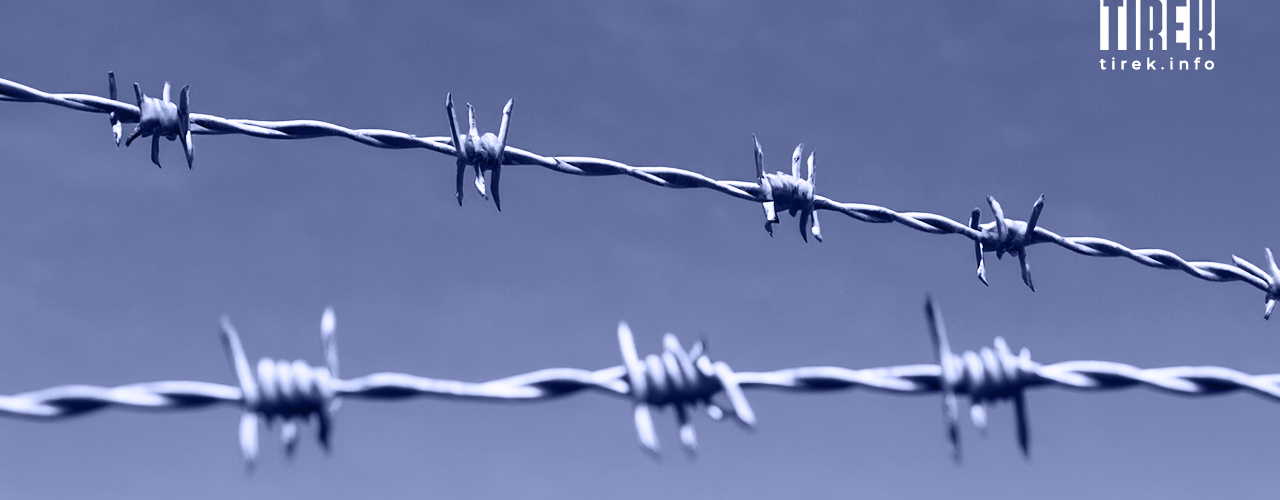
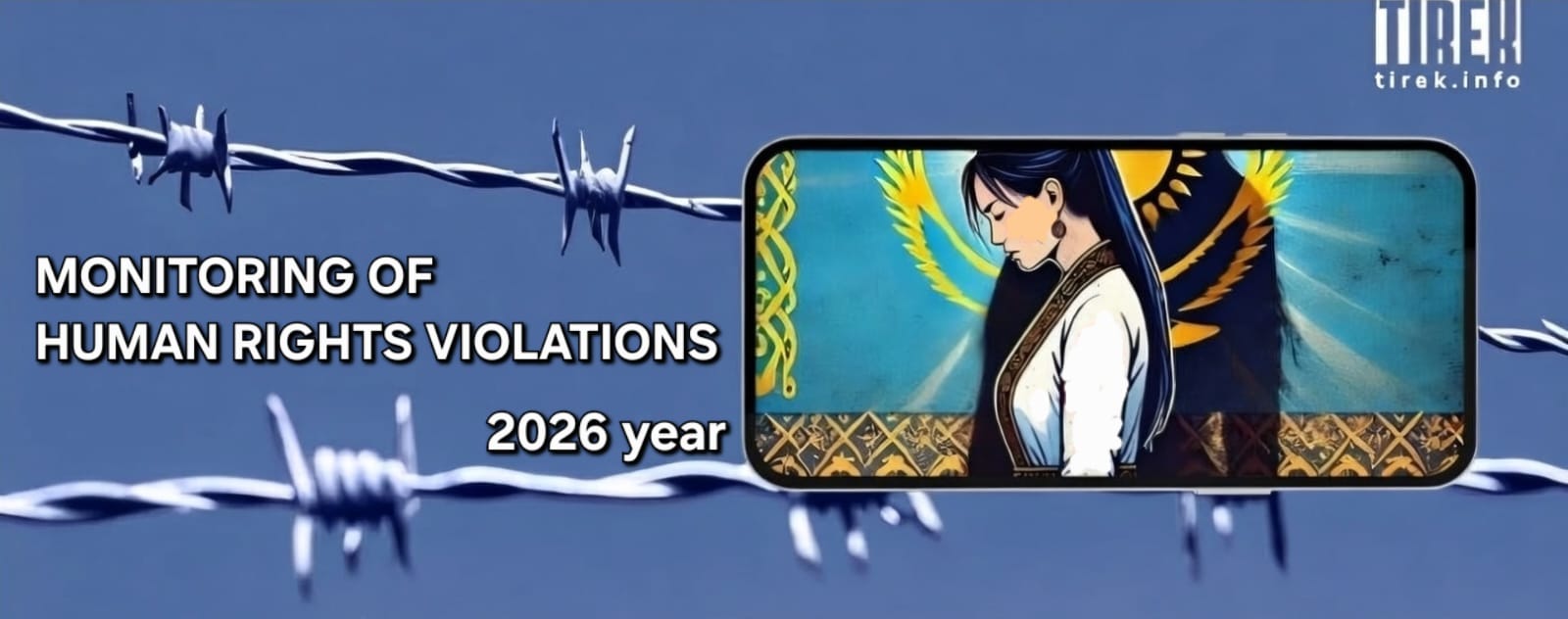
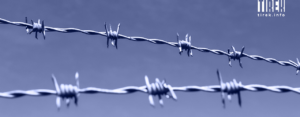
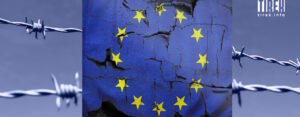
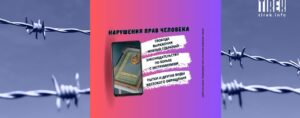
Для отправки комментария необходимо войти на сайт.